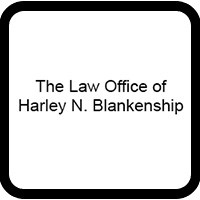Garfield Foreclosure Lawyer, Kentucky
Not enough matches for Garfield Foreclosure lawyer.
Below are all Garfield Real Estate lawyers.
Harley N. Blankenship
✓ VERIFIEDAccident & Injury, Criminal, Divorce & Family Law, Estate, Real Estate
Harley Blankenship is a practicing lawyer in Louisville, KY after being admitted to the Kentucky Bar in 1970. He received his Juris Doctor in 1970 fro... (more)
William S. Bornstein
✓ VERIFIEDAccident & Injury, Real Estate, Wills & Probate
Our attorneys at Bornstein Oppenheimer, PLLC are highly experienced and reputable litigators, negotiators, advocates, and counselors. Together with a ... (more)
Leeann Thornhill
Foreclosure, Garnishment, Commercial Bankruptcy, Bankruptcy
Status: In Good Standing
FREE CONSULTATION
CONTACTJohnathan Carlton Ryan
Foreclosure, Insurance, Credit & Debt
Status: In Good Standing Licensed: 12 Years



